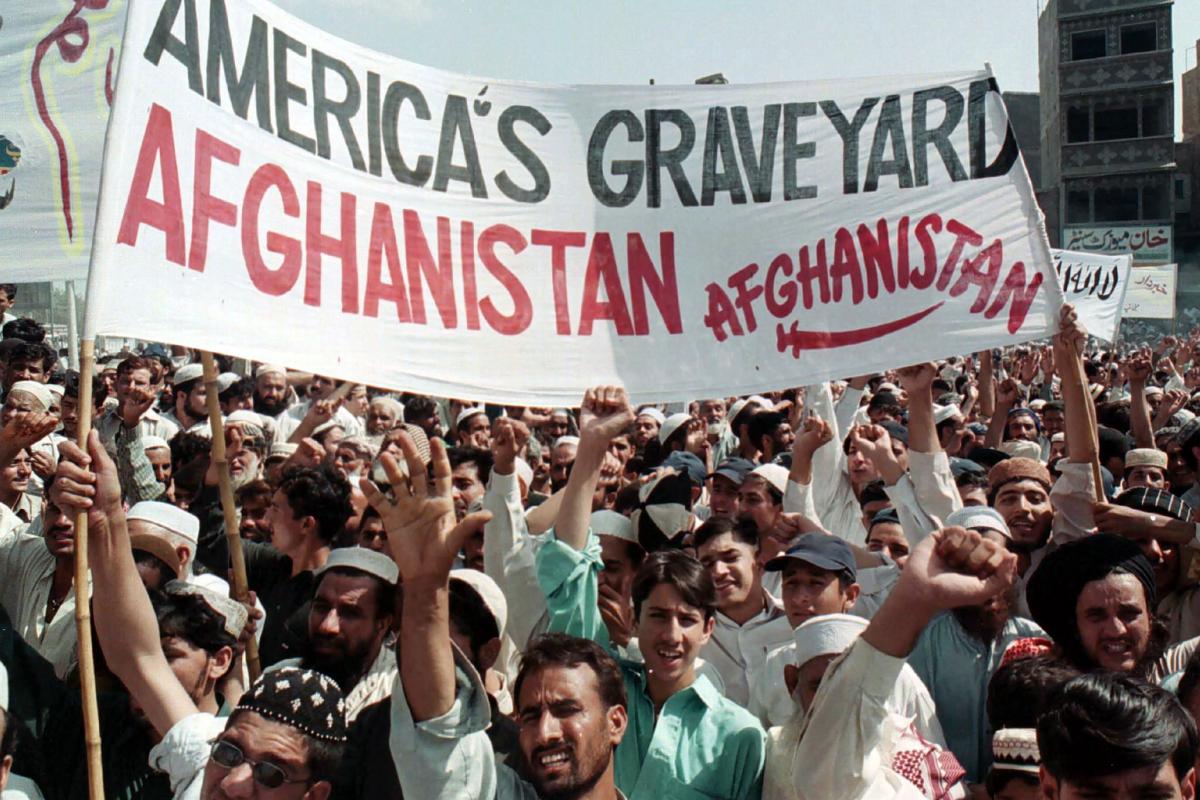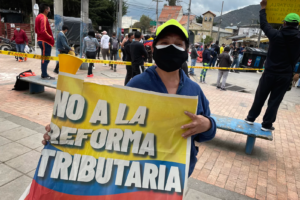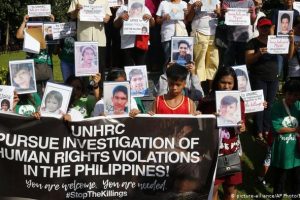On the eve of the twentieth anniversary of the 9/11 attacks, we join people’s movements and civil society in resisting US warmongering propaganda. We call to end the US “War on Terror” and hold its entire war machine accountable for crimes against humanity. We express our support to the Afghan people’s struggle for national liberation, self-determination, and social justice.
IBON International joins people’s movements in extending solidarity to the Afghan people who have been suffering through decades of US military intervention, in line with its global campaign against “terror”. After two decades of US invasion and occupation, the Taliban has re-established its power in Afghanistan since it took over the country’s capital, Kabul, last August 15. Tens of thousands of people, many of whom have worked with the deposed US-backed government, have fled the country from fear of reprisals from the Taliban. The Taliban has also recently recaptured Panjshir Valley – the last province that mounted resistance against the Taliban- and now has control over 34 provinces of the country. The Taliban’s immediate recapture of power shows the failure of the US to indefinitely impose its monopoly capitalist agenda upon a people through military aggression.
We condemn the US war on Afghanistan which has caused immeasurable loss and incomprehensible suffering to the Afghan people. We call for an end to all military attacks in the country, as well as to the US “War on Terror” that continues to kill and destroy lives for superprofit, under the guise of promoting human rights and democracy. We call on states, especially those who were involved in the invasion, to open their borders and accommodate refugees and asylum-seekers, and to end military aid to Afghanistan and other conflict-affected countries. We urge the international community and development actors to provide humanitarian assistance that responds to the needs of Afghan people, as well as support to Afghan civil society organisations that work on ground.
Impacts of US war on Afghan people
The US invasion of Afghanistan has killed over 241,000 people, including more than 71,000 civilians, and destroyed livelihoods and infrastructure that left Afghan people in inhumane living conditions. While the US has used feminist and human rights rhetoric to prolong the war, Afghan women have lost their families and children, and suffer from the consequences of the war such as disease and injury, loss of access to food, water, and medical services.
The US military is the world’s largest consumer of oil and one of the top greenhouse gas emitters, and its wars have destroyed countries’ natural resources, such as the water resources in Afghanistan, Iraq, and Pakistan, and exacerbate climate change impacts. Afghanistan suffers from drought and severe water shortages that contribute to food insecurity in the country, where nearly one-third of the people do not know if they will be able to eat a meal each day.[i] Moreover, while the US and other powerful countries have poured obscene amounts of military aid into the country, necessary investments to “boost its water and climate resilience”[ii] have been lacking. The US invasion has violated the Afghan people’s sovereignty and self-determination for decades, and left them with dismal prospects for development. Whether the Taliban-led government, unlike the US and its previous installed government, would fulfil its promise of addressing the needs and upholding the interests of the Afghan people remains to be seen.
While the US has used feminist and human rights rhetoric to prolong the war, Afghan women have lost their families and children, and suffer from the consequences of the war such as disease and injury, loss of access to food, water, and medical services.
The US military-industrial complex
The US military-industrial complex, composed of its military and Department of Defense, arms manufacturers, defense contractors private military contractors, research institutions and lobbyists, fuels wars and conflict in Afghanistan, Pakistan, Iraq, Syria, and Yemen, among others. Defense contractors and oil companies profit from US military interventions in Afghanistan and elsewhere through lucrative contracts with the US government. Following the rapid growth in US military spending in line with its post-9/11 “War on Terror”, military contracting has also increased.
In 2019 alone, the US spent USD 370 billion on military contracting – 164% higher than its spending on contractors in 2001. Top US arms manufacturer and defense contractor Lockheed Martin “earns about 85 percent of its revenues through government contracting, and about 10 percent of all military contract dollars” or around USD40 billion per year. It sells F-35 planes to the military and also holds a contract to provide lifetime service for the planes. US company KBR, Inc. (formerly Kellogg, Brown & Root) has secured over USD50 billion in government contracts between 2001 and 2019, while US private military company Blackwater has secured various contracts in Afghanistan and Iraq since 2001.
The US defense industry works hand in hand with lawmakers, policymakers, and research institutions in supporting military interventions. Government officials themselves have business interests in the defense industry. Lloyd Austin, the current Secretary of Defense under US President Joe Biden, was a former board member of US defense contractor Raytheon.
The US defense industry works hand in hand with lawmakers, policymakers, and research institutions in supporting military interventions “to create markets for military goods and services”.[iii] In 2019 alone, top US defense contractors Boeing, Northrop Grumman, and Lockheed Martin each spent over USD13 million on political lobbying. Government officials themselves have business interests in the defense industry. Former US Secretary of Defense and Vice President Dick Cheney served as the CEO of Halliburton, the owner of subsidiary KBR (then known as Brown & Root) in between his time in public service from 1989 to 2009. Lloyd Austin, the current Secretary of Defense under US President Joe Biden, was a former board member of US defense contractor Raytheon.
The US government deceives the American public about the “true human costs” of its wars by contracting more personnel instead of sending off more US troops. In 2019, there were 53,000 US contractors compared to 35,000 U.S. troops in the Middle East. Many contractors are non-US citizens who work in “abysmal conditions and face human rights abuses”.[iv] Injuries and deaths of contractors are also “less publicly visible or acknowledged”[v] and so are less likely to cause public outrage. The US hides the full human cost of its wars to make them more palatable and to dodge opposition from the American public.
The US “War on Terror”
In the Philippines, the Anti-Terror Act of 2020, which expands the Human Security Act of 2007, has intensified the vilification, trumped-up charges against, arbitrary detention, forced disappearance, and even the massacre of activists. Moreover, contrary to its proclaimed objectives of eradicating “terrorism” and establishing democracies, the US war on terror has worsened armed conflict.
The US global “War on Terror” has killed at least 801,000 people, including 387,000 civilians in Afghanistan, Pakistan, Iraq, Syria, and Yemen through direct war violence such as air and drone strikes. Thousands of others have died due to the consequences of war, such as food insecurity and decimated social infrastructure. The war campaign has also displaced 38 million people in Afghanistan, Pakistan, Iraq, Syria, Libya, Yemen, Somalia, and the Philippines.
Since 2001, US “counter-terrorism” efforts have expanded in over 85 countries. It has troops in combat in 12 countries, and conducts training and military exercises in dozens of others such as the Philippines. In line with the US campaign, several countries have enacted counter-terrorism laws that violate people’s rights and even aid state-perpetrated abuses. In the Philippines, the Anti-Terror Act of 2020, which expands the Human Security Act of 2007, has intensified the vilification, trumped-up charges against, arbitrary detention, forced disappearance, and even the massacre of activists. Moreover, contrary to its proclaimed objectives of eradicating “terrorism” and establishing democracies, the US war on terror has worsened armed conflict.
On the eve of the twentieth anniversary of the 9/11 attacks, we join people’s movements and civil society in resisting US warmongering propaganda. We call to end the US “War on Terror” and hold its entire war machine accountable for crimes against humanity. We express our support to the Afghan people’s struggle for national liberation, self-determination, and social justice. Their aspiration for peace based on social justice is shared by all oppressed peoples and nations who continue to resist US militarism driven by monopoly capitalist interests. #
[i] https://www.pri.org/stories/2021-09-08/drought-has-severely-impacted-livestock-keepers-afghanistan-head-un-food-agency
[ii] https://www.climatechangenews.com/2021/08/24/afghanistan-risk-famine-amid-drought-taliban-takeover/
[iii] Peltier, Heidi. “The Growth of the “Camo Economy” and the Commercialization of the Post-9/11 Wars.” https://watson.brown.edu/costsofwar/papers/2020/growth-camo-economy-and-commercialization-post-911-wars-0
[iv] Ibid.
[v]Ibid.



